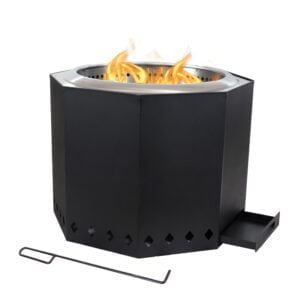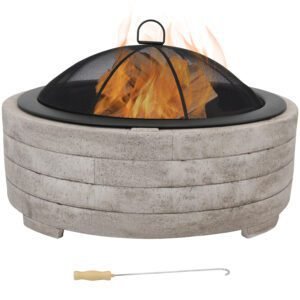Table of Contents
ToggleIntroduction:
Tips to Prevent Holiday Stress! The holiday season is often portrayed as a time of joy, celebration, and togetherness. However, for many people, it can also be a source of overwhelming stress and even depression.
The pressure to create the perfect holiday can be tough. Financial strain, family issues, and high expectations can affect mental health. Understanding the impact of holiday stress is the first step towards finding effective ways to prevent and manage it.
The Impact Of Holiday Stress On Mental Health
Holiday stress can have a profound impact on mental health. The pressure to meet social expectations and create a perfect holiday can cause feelings of inadequacy, anxiety, and depression.
Financial strain, caused by the expenses associated with gift-giving and holiday festivities, can further exacerbate these feelings. The constant rush and demands of the season can make people feel overwhelmed and tired. This can lead to both physical and emotional exhaustion.
Tip 1: Prioritize Self-Care And Relaxation
One of the most important ways to prevent and manage holiday stress is by prioritizing self-care and relaxation. It’s crucial to carve out time for activities that bring you joy and help you unwind.
You can reduce stress by finding calm moments in your day. This can be a warm bath, reading a book, or taking a walk in nature.
It’s important to get enough sleep, eat healthy foods, and exercise regularly. These factors are key to staying healthy.
Tip 2: Set Realistic Expectations And Boundaries
Setting realistic expectations and boundaries is vital in preventing holiday stress. It’s important to remember that you don’t have to do everything or please everyone. Take a step back and evaluate what truly matters to you during the holiday season.
Prioritize activities and traditions that bring you joy and let go of those that feel overwhelming or unimportant. Communicate your boundaries to loved ones and set realistic expectations for yourself. Remember, it’s okay to say no and prioritize your mental and emotional well-being.
Tip 3: Practice Gratitude And Mindfulness
Practicing gratitude and mindfulness can be powerful tools in combating holiday stress. Taking time each day to reflect on the things you are grateful for can shift your focus from what’s not going well to what is.
Practicing mindfulness through activities like meditation or deep breathing can help you stay present and lower stress. By focusing on the present and enjoying the small joys of the holiday season, you can feel more positive and peaceful.
Tip 4: Stay Active And Maintain A Healthy Lifestyle
Physical activity and maintaining a healthy lifestyle are essential in managing holiday stress. Regular exercise not only helps reduce stress and anxiety but also boosts mood and increases energy levels. Find activities that you enjoy and make them a priority during the holiday season.
Additionally, be mindful of your eating habits and strive to nourish your body with nutritious foods. Enjoying holiday treats is fun, but keeping a balanced diet is important. It can help you feel better and reduce stress.
Tip 5: Simplify And Delegate Holiday Tasks
The holiday season often comes with a long to-do list, which can be overwhelming and contribute to stress. Simplifying and delegating tasks can alleviate some of the pressure. Identify which tasks are most important to you and focus on those, letting go of non-essential ones.
Delegate responsibilities to family members or friends, spreading the load and creating a sense of shared responsibility. Remember, the holiday season is for spending time with loved ones. It is about making meaningful memories, not being the perfect host or hostess.
Tip 6: Seek Support From Loved Ones Or Professionals
Seeking support from loved ones or professionals is crucial when dealing with holiday stress and depression. Reach out to trusted friends or family members and share your feelings and concerns. Sometimes, simply talking about your stressors can provide relief and a fresh perspective.
If you need help, think about talking to a therapist or counselor. They can give you support during this tough time. Remember, asking for help is a sign of strength, and you don’t have to face holiday stress alone.
Tip 7: Take Breaks And Enjoy The Present Moment
Amidst the hustle and bustle of the holiday season, it’s essential to take breaks and enjoy the present moment. Set aside time for activities that bring you joy and allow you to fully immerse yourself in the holiday spirit.
You can enjoy simple moments during the holidays. You might cuddle with a cup of hot cocoa while watching a holiday movie. Or, you could take a nice walk to see the festive decorations. These activities can lift your spirits and help you feel more centered.
Understanding The Causes And Triggers Of Holiday Stress And Depression
Holiday stress and depression can be triggered by a variety of factors. Financial strain from purchasing gifts and planning holiday festivities can lead to anxiety and worry. The pressure to create the perfect holiday for yourself and others can lead to stress and feelings of not being good enough.
Additionally, family dynamics and expectations can be a major source of stress during the holiday season. For some individuals, the holidays may remind them of past traumas or losses, intensifying feelings of sadness and grief.
Facts And Statistics On Holiday Stress And Depression in the US
Holiday stress and depression are prevalent issues in the United States. According to the National Alliance on Mental Illness (NAMI), approximately 64% of individuals with mental illness report increased symptoms during the holiday season.
Additionally, the American Psychological Association (APA) states that 8 out of 10 Americans experience increased stress during the holidays. These statistics highlight the need to address and manage holiday-related emotional challenges effectively.
Signs And Symptoms:
It is important to notice the signs of holiday depression, anxiety, and stress. This helps you get the right support and help. Common signs include ongoing feelings of sadness or hopelessness. You may notice changes in your appetite or sleep. Irritability, trouble concentrating, and losing interest in activities you once enjoyed are also signs.
Individuals experiencing holiday-related anxiety may exhibit symptoms such as restlessness, muscle tension, excessive worry, and trouble relaxing. Recognizing these signs can help individuals and their loved ones identify when additional support or intervention may be necessary.
Coping Strategies
Managing holiday stress and depression requires proactive steps and coping strategies. One effective approach is to prioritize self-care. Doing activities that help you relax and feel good, like exercising, meditating, and being in nature, can reduce stress. It is also crucial to set realistic expectations and boundaries.
Learning to say no to too many commitments can help. Focusing on activities that are meaningful and enjoyable can reduce feelings of being overwhelmed. Also, getting support from friends, family, or a therapist can help you process your feelings and see things.
Tips To Prevent And Reduce Holiday Stress And Depression
Preventing and reducing holiday stress and depression is possible with mindful planning and self-awareness. One important tip is to create a budget for holiday expenses to avoid financial strain. It can also be helpful to establish clear boundaries and communicate openly with loved ones about expectations and limitations.
Taking care of yourself and keeping healthy habits is important. Regular exercise, good nutrition, and enough sleep can help your emotional well-being. Finally, practicing gratitude and focusing on the good parts of the holiday season can change how we see things. This can help lower stress levels.
Seeking Professional Help:
If holiday stress and depression become overwhelming or persist beyond the holiday season, seeking professional help is crucial. Mental health professionals, such as therapists or counselors, can provide specialized support and guidance.
They can help individuals navigate their emotions, develop coping strategies, and address underlying issues contributing to holiday-related distress. It is important to remember that seeking help is a sign of strength and can lead to improved well-being.
Self-Care Practices For Mental Well-Being:
Practicing self-care is essential for maintaining mental well-being during the holiday season. You can do things that make you happy and relaxed. This can include taking warm baths, reading, or enjoying hobbies.
Setting aside time for oneself and prioritizing rest is crucial. It is also important to maintain healthy boundaries and not overextend oneself. Saying no when necessary and taking breaks from social gatherings can help individuals recharge and prevent emotional burnout.
Support Resources:
Several support resources and organizations are available for individuals experiencing holiday stress and depression. The National Suicide Prevention Lifeline offers confidential support 24/7, and their helpline can be reached at 1-800-273-TALK (8255).
The Substance Abuse and Mental Health Services Administration (SAMHSA) has a tool on their website. This tool helps people find mental health services near them.
Additionally, local community centers and religious organizations often offer support groups and counseling services during the holiday season.
Final Thoughts:
The holiday season can be a challenging time for many individuals, with increased stress, anxiety, and depression. You can manage your emotions better.
- First, understand the causes and triggers.
- Next, recognize the signs and symptoms.
- Finally, use coping strategies.
It’s important to get professional help when you need it. Focusing on self-care is also essential. These steps can help keep your mental health strong during the holidays. Remember, it is okay to prioritize your emotional health and seek support during this time. By taking care of ourselves, we can better enjoy the true spirit of the holiday season.
Conclusion:
Holiday stress and depression can cast a dark shadow on what should be a joyous time of year. You can manage holiday stress. Understand how it affects you. Use these seven essential tips to help you. This way, you can enjoy a happier and more relaxed season.
Take care of yourself. Set realistic goals. Practice gratitude and mindfulness. Stay active. Simplify your tasks. Seek support from others. Take breaks to enjoy the moment.
Remember, the holiday season is about making special memories. It is also about spending time with loved ones, not about being perfect. Embrace these tips, and may your holiday season be filled with joy, peace, and happiness.
Take the first step towards a stress-free holiday season by implementing these essential tips today. Prioritize your well-being and embrace the joy and happiness that the holidays can bring.
Remember, you deserve a holiday season filled with love, peace, and relaxation.
Affiliate Disclosure:
The links contained in this product review may result in a small commission. This goes towards supporting our research and editorial team and please know we only recommend high-quality products.
Note: This article is for informational purposes only and is not intended to diagnose, treat, or cure any disease. Always consult a healthcare professional before taking supplements or changing your diet or lifestyle.




















